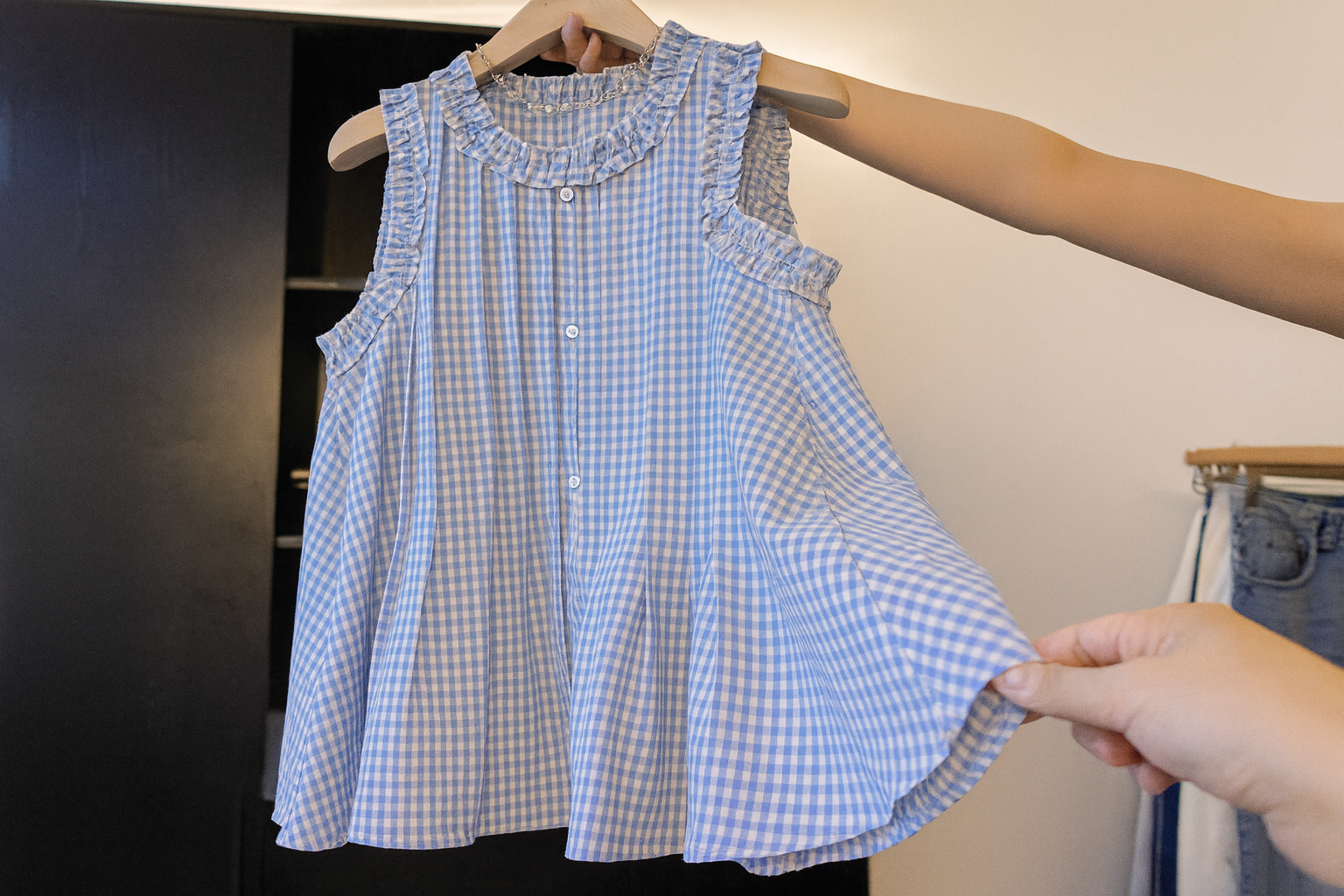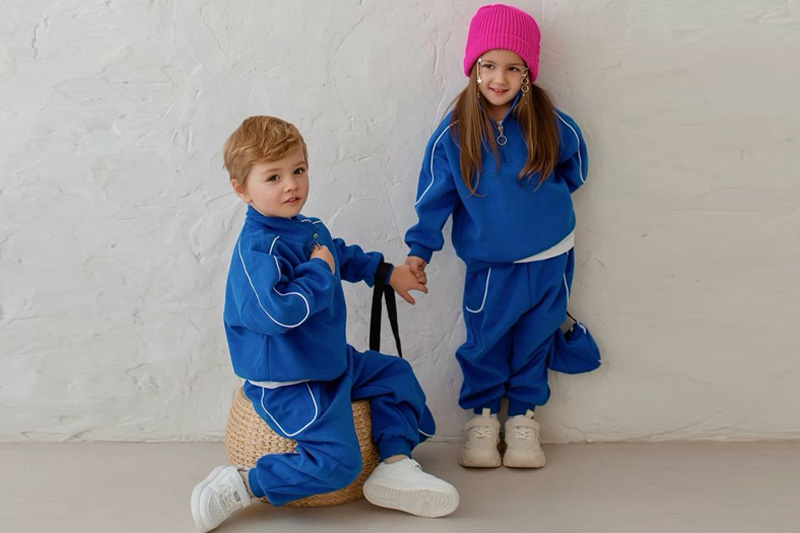In today's fast-paced world, parents are increasingly seeking unique clothing options that reflect their children's personalities and cultural backgrounds. This growing desire for personalized apparel has led to a significant shift in the children's fashion industry, with customization becoming more prevalent than ever before.
The demand for customization in children's apparel is rising as parents seek unique, personalized clothing that reflects their children's individuality and cultural heritage. This trend is driven by advancements in technology, increased cultural awareness, and a desire for sustainable fashion choices.
As we delve deeper into this topic, we'll explore the factors fueling this trend and how brands can adapt to meet the evolving needs of modern families.
The Rise of Personalization: Meeting Modern Parents' Expectations
In an era where individuality is celebrated, how are children's apparel brands adapting to meet the personalized preferences of modern parents?
Personalization has become a cornerstone in children's fashion, with parents increasingly seeking unique designs that resonate with their child's personality and cultural background.
Brands are responding by offering customizable options, allowing parents to select fabrics, patterns, and features that align with their values and aesthetic preferences.

The desire for personalized children's clothing has grown significantly in recent years. Parents are no longer satisfied with off-the-rack options; they want garments that tell a story, reflect their heritage, or simply stand out in a crowd. This shift has prompted brands to innovate, offering services that enable customers to tailor clothing to their specific desires.
For instance, some companies now provide online platforms where parents can choose from various designs, colors, and embellishments to create a one-of-a-kind piece for their child. This approach not only enhances customer satisfaction but also fosters a deeper connection between the brand and the consumer.
Empowering Young Identities: The Role of Custom Apparel in Child Development
How does personalized clothing contribute to a child's sense of identity and self-expression?
Custom apparel plays a pivotal role in nurturing a child's individuality, allowing them to express their unique tastes and cultural heritage from a young age.
By wearing personalized clothing, children can develop a stronger sense of self and confidence, as their attire becomes an extension of their personality.
The impact of personalized clothing on child development is profound. When children have a say in what they wear, it empowers them to make choices and express their preferences, fostering independence and self-esteem. Moreover, incorporating cultural elements into their wardrobe can instill pride and a deeper understanding of their heritage.
Consider a brand that offers traditional African prints in children's clothing. By integrating these designs, children of African descent can celebrate their roots, while others gain exposure to diverse cultures, promoting inclusivity and appreciation for global traditions.
Technological Innovations: Simplifying Customization for Emerging Brands
What technological advancements are facilitating the rise of customization in children's fashion?
Recent technological innovations have streamlined the customization process, making it more accessible for both brands and consumers.
Tools such as 3D printing, AI-driven design platforms, and virtual fitting rooms have revolutionized the way personalized children's apparel is created and experienced.
The integration of technology in fashion has broken down previous barriers to customization. AI algorithms can now analyze consumer preferences and suggest personalized designs, while 3D printing allows for rapid prototyping and production of unique garments. Virtual fitting rooms enable parents and children to visualize how customized clothing will look and fit before making a purchase, enhancing the overall shopping experience.
These advancements not only cater to the demand for personalization but also reduce waste by ensuring that each piece is made to order, aligning with sustainable practices.
Sustainability and Ethical Production: Aligning Customization with Conscious Consumerism
How does the trend toward customized children's apparel intersect with the growing demand for sustainability and ethical production?
Customization in children's fashion aligns seamlessly with sustainable and ethical production practices by emphasizing quality over quantity and reducing mass production waste.
By focusing on made-to-order models, brands can minimize overproduction, utilize eco-friendly materials, and ensure fair labor practices, resonating with environmentally conscious consumers.
The move towards personalized clothing encourages consumers to invest in higher-quality pieces that hold sentimental value, rather than disposable fashion items. This shift supports a more sustainable industry by decreasing the volume of discarded clothing and promoting mindful consumption.
Brands that prioritize ethical sourcing and transparent manufacturing processes not only appeal to the values of modern parents but also set a standard for responsibility within the industry. By offering customization alongside sustainable practices, companies can build trust and loyalty among their customer base.
Strategies for Startups: Implementing Customization to Build Brand Loyalty
What approaches can emerging children's apparel brands take to incorporate customization and foster lasting customer relationships?
Startups can differentiate themselves in the competitive children's fashion market by integrating customization options that cater to the unique preferences of their target audience.
Strategies include leveraging social media for direct consumer engagement, utilizing data analytics to understand customer trends, and offering interactive design platforms to co-create products with consumers.
Implementing customization doesn't require extensive resources. Small brands can start by offering simple personalization options, such as monogramming or selecting from a curated range of fabrics and patterns. Engaging with customers through social media platforms allows brands to gather feedback, showcase customized creations, and build a community around their products.
By focusing on the customer experience and valuing individual preferences, startups can cultivate brand loyalty and stand out in a crowded marketplace.
Conclusion
The growing demand for customization in children's apparel reflects a broader cultural shift towards individuality, cultural appreciation, and sustainable consumption. By embracing personalization, brands can not only meet the evolving expectations of modern parents but also contribute to a more ethical and environmentally conscious fashion industry.


